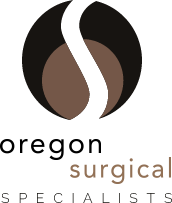PATIENT INFORMATION
Gastroesophageal Reflux Disease (GERD): Nissen Fundoplication
Procedure Instructions
What to Expect after your Surgery
Most people go home 1 to 3 days after laparoscopic surgery and 7 to 10 days after an open surgical repair. A nasogastric (NG) tube, going through your nose and into your stomach, may be used to keep your stomach empty for a few days. The surgery will cause a postoperative ileus. This is a temporary paralysis of a portion of the intestines preventing food or drinks from moving forward. It is important for you to slowly start your diet to prevent complications. You’ll receive the fluids you need intravenously during that time. When you start to pass gas, it is a sign that your colon is working again. Then the hospital will start you on a liquid diet. If you are tolerating the liquid diet with no nausea or increased abdominal pin, you will progress to a soft diet, typically in a day or so. You should continue the soft diet for 2 to 8 weeks after surgery, depending on your healing and what your doctor instructs. We will provide a list of food to help you choose a soft diet when you return home.
Caring for Yourself after Surgery
Activity/Work: When you return home, take it easy. Avoid all strenuous activities and do not lift more than 5 to 10 pounds for at least 3 to 4 weeks after surgery. You will be able to return to work 1 to 2 weeks after laparoscopic surgery and 3 to 4 weeks after an open surgical repair, depending on the type of work and if light duty is acceptable.
Bathing: You can shower 24 to 48 hours after surgery unless ordered by your doctor. There will be sterile tape over the incision. Leave the tape on while showering. Do not soak in a bath or hot tub until your incision is completely healed. This may take 6 to 8 weeks.
Pain: Pain control is very important after surgery. Be sure to stay ahead of the pain and take your pain medication as prescribed by your doctor. You may add Advil (ibuprofen) to your pain medication if you do not have any allergies or contraindications for taking Advil. Take as directed on the bottle. Ask your doctor if you have any questions. Right shoulder pain is common after laparoscopic surgery. This may be caused by gas left from inflating your abdomen, and it should go away within a few days.
Driving: Do not drive while taking pain medications. It is considered driving “Under the Influence.” You will be able to drive when you feel capable of making a quick decision and can function without pain medications.
Incision Care: When you leave the hospital, your incisions will be covered by a sterile bandage. This will fall off or will be removed when you have your post-op visit. There may be some drainage from the incisions, which is normal. This drainage should be thin, watery, and slightly pink, but should not be bright red blood. An infection may be starting if the drainage is thick green or yellow, or if the skin around the incision is red or warm to touch. Some swelling and bruising around the incisions is normal and should improve in the days following your surgery.
Fever is common after surgery. If your temperature rises above 101.5 degrees, call your doctor.
Constipation is very common following a surgery. Taking pain medications such as vicodin or Percocet also cause bowel to move more slowly. It is also suggested to take a stool softener such as colance with taking pain medications. To help with constipation try prune juice or milk of magnesium as needed.
Diet: After a Nissen fundoplication, you may experience difficulty swallowing due to swelling at the site of the surgery. The increased tightness of the LES may also cause you to swallow more air when you eat. To speed your recovery, we recommend you follow a soft diet, and follow the suggestions contained in our patient handout ![]() .
.
Swelling inside the esophagus may produce a feeling of tightness and difficulty swallowing. This goes away gradually in 6 to 8 weeks.
Food/Drink: Eat foods that are easy to swallow and digest, such as soup, bananas, gelatin, pudding, and yogurt. Eat frequent, small meals. Avoid carbonated drinks for 3 to 4 weeks. Once you start eating solid foods, you’ll need to chew your food well and don’t gulp. This helps prevent gas build-up and makes swallowing easier. Once you begin eating regular meals, you may feel full faster. This will go away over time.
When to Call the Doctor
- Fever over 101.5 degrees.
- Bleeding from the incision.
- Increased abdominal pain.
- Nausea or Vomiting.
- Cough or difficulty breathing.
- Extreme difficulty or inability to swallow.
You are always welcome to call the office with your questions or concerns. After hours, an answering service will direct your questions to the on-call providers. However, these individuals are unable to call in prescriptions for pain medication after 5 p.m.
